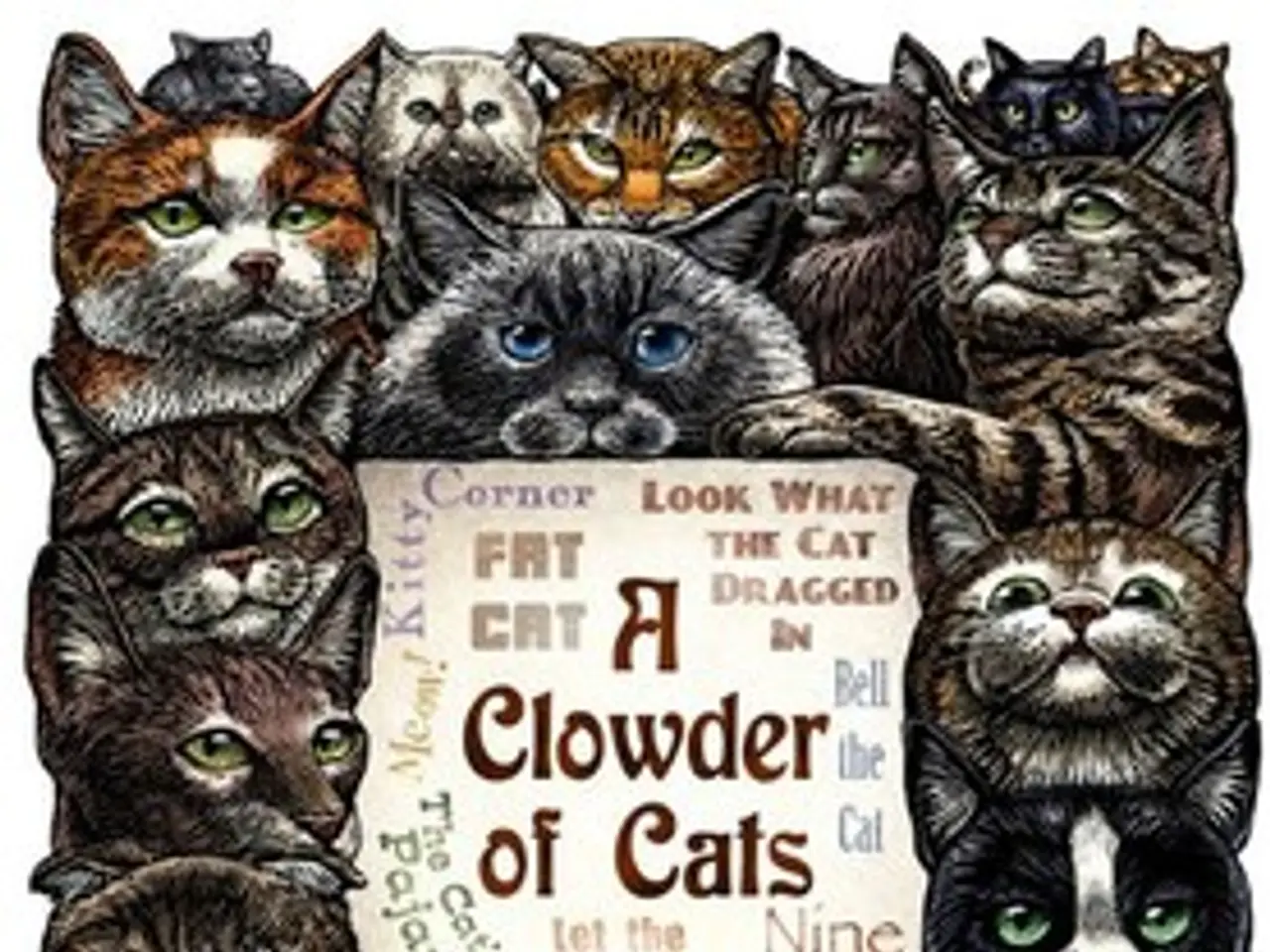Enhancements in Indian Animal Health: Discussing Pivotal Reforms, Advances in Vaccination, and Global Acknowledgment at the 9th ECAH Conference
India's Ongoing Fight Against Foot and Mouth Disease and Antimicrobial Resistance
In a significant move to combat Foot and Mouth Disease (FMD) and promote animal health sustainability, the 9th meeting of the Empowered Committee for Animal Health (ECAH) was held in New Delhi on July 24, 2025. The meeting was co-chaired by DAHD Secretary Alka Upadhyaya and Principal Scientific Adviser to the Government of India, Prof. Ajay Kumar Sood.
The meeting brought together senior officials from PSA, ICMR, CDSCO, DBT, Ministry of Ayush, and other key institutions to discuss and strategize on India's current policies and initiatives for managing FMD.
India's approach integrates vaccination, robust surveillance, biosecurity measures, infrastructure enhancement, and regulatory frameworks, targeting effective FMD management. The government is implementing periodic rounds of preventive vaccination against FMD nationwide, as recently seen in the 6th and 7th rounds of vaccination carried out in multiple states including Maharashtra and Tamil Nadu in 2024-25. These vaccination campaigns are parts of the 100% centrally sponsored program targeting effective control and eventual eradication of FMD.
Additionally, the Indian government has established an ECAH in 2021, which acts as a high-level advisory body providing strategic guidance on policies for animal disease control, including FMD. The committee also supports One Health initiatives and monitoring regulatory concerns with veterinary pharmaceuticals and biologicals.
Efforts to strengthen infrastructure for dealing with such diseases include the designation of specialized laboratories and facilities acknowledged by the World Organisation for Animal Health (WOAH) and FAO. Notably, ICAR-National Institute of High Security Animal Diseases (NIHSAD), Bhopal, has been recognized as a top-level Rinderpest Holding Facility, ensuring preparedness against transboundary animal diseases related to FMD and others. This certification underlines India’s leadership in surveillance and containment strategies.
Regarding antimicrobial resistance (AMR) in animals, while direct details on specific AMR policies were not explicitly found in the recent search results, the role of the ECAH includes regulatory oversight of veterinary pharmaceuticals, which implies attention toward prudent antimicrobial use and possible AMR mitigation strategies within the One Health framework. India also emphasizes improving biosecurity and disease prevention in animal husbandry—measures that indirectly help reduce the need for antimicrobials and thus combat AMR.
The meeting also highlighted the establishment of two national laboratory networks: Indian Network of Genomic Surveillance (INGeS) and Indian Network on Transboundary Animal Diseases (TADs) and Emerging Infectious Diseases (EIDs). Furthermore, the Equine Disease-Free Compartment at the RVC Centre & College in Meerut Cantonment has been endorsed by the World Organisation for Animal Health (WOAH), facilitating the international movement of Indian sport horses.
Infrastructural developments such as vaccination programs, biosecure production systems (approved poultry compartments maintaining export standards), and establishment of breeder associations reflect broader initiatives promoting animal health sustainably. These contribute to reducing disease burden and antibiotic dependence.
To promote transparency and performance benchmarking in diagnostic services, a new digital platform titled "Rate My Lab" is in development. The vaccination efforts are being digitally recorded through the Bharat Pashudhan app. Prof. Sood called for intensified awareness drives on FMD vaccination and antimicrobial resistance (AMR).
The meeting did not discuss the number of vaccines administered or the digitally recorded vaccination efforts through the Bharat Pashudhan app. Nearly 29 crore PPR vaccine doses, 4.77 crore for Brucellosis, and close to 88 lakh for Classical Swine Fever vaccine doses have also been administered. All vaccines under these national programs are developed and manufactured indigenously. A total of 44 Highly Pathogenic Avian Influenza (HPAI) compartments have been approved in India.
India's integrated approach to managing FMD and addressing antimicrobial resistance in animals demonstrates a commitment to ensuring the health and welfare of its livestock and contributing to global animal health initiatives.
- The 9th meeting of the Empowered Committee for Animal Health (ECAH) discussed strategies for managing Foot and Mouth Disease (FMD) in India, incorporating vaccination, robust surveillance, biosecurity measures, and regulatory frameworks.
- India's approach to animal health and sustainability also includes health-and-wellness initiatives, such as periodic preventive vaccination campaigns against FMD.
- The government's efforts extend to fitness-and-exercise, with biosecure production systems ensuring export standards in poultry farming.
- To combat antimicrobial resistance (AMR) in animals, the ECAH provides regulatory oversight of veterinary pharmaceuticals, which may imply prudent antimicrobial use and strategies for AMR mitigation.
- India's approach emphasizes environmental-science, as it seeks to improve biosecurity and disease prevention in animal husbandry, which indirectly helps reduce the need for antimicrobials.
- In terms of nutrition, the government has introduced vaccination programs and digital platforms like the Bharat Pashudhan app to digitally record vaccination efforts.
- The meeting also touched upon technological advancements in the form of the Indian Network of Genomic Surveillance (INGeS) and Indian Network on Transboundary Animal Diseases (TADs) and Emerging Infectious Diseases (EIDs).
- The meeting did not discuss specifics on the number of vaccines administered or the vaccination efforts through the Bharat Pashudhan app, but close to 29 crore PPR vaccine doses, 4.77 crore for Brucellosis, and almost 88 lakh for Classical Swine Fever vaccine doses have been administered.
- To enhance transparency and performance benchmarking in diagnostic services, a new digital platform titled "Rate My Lab" is under development.
- Prof. Sood called for intensified awareness drives on FMD vaccination and AMR in the context of education-and-self-development and lifestyle.
- The meeting's outcomes underscore the government's commitment to health and welfare of livestock, contributing to general-news discourses on global animal health initiatives and fitness-and-exercise.




